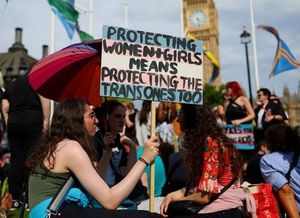In a move that has sent shockwaves through diplomatic circles from Washington to the Gulf, President Donald Trump has issued an executive order providing Qatar with a sweeping U.S. security guarantee—one that draws striking parallels to NATO’s famed Article 5. According to the White House, the order, signed on October 1, 2025, pledges that the United States will treat any armed attack on Qatar as a threat to the peace and security of the United States itself, and respond with all lawful and appropriate measures, including military force if necessary. The announcement comes in the wake of a failed Israeli strike on Hamas officials in Doha three weeks prior, an operation that also resulted in the death of a Qatari security staffer and five lower-ranking Hamas members, as reported by Euronews.
The timing and context of this executive order are anything but coincidental. The document was signed the same day Israeli Prime Minister Benjamin Netanyahu visited the White House, though it wasn’t made public until two days later. The Israeli air strike on Doha, which occurred on September 9, 2025, drew widespread international condemnation and prompted Netanyahu to issue a rare public apology to Qatar for the death of its citizen. In a joint call with Trump at the White House on September 29, Netanyahu conveyed his apologies directly to Qatar’s Prime Minister Sheikh Mohammed bin Abdulrahman bin Jassim Al Thani—a moment many observers have described as a political humiliation for the Israeli leader, according to Axios.
For Qatar, this security guarantee is more than just compensation for the recent attack; it’s a historic breakthrough. As Axios explains, many Arab countries—most notably Saudi Arabia—have sought similar defense pacts with the United States for years, only to be rebuffed. “Saudi Arabia thought that to get a defense pact with the United States, it would require normalizing relations with Israel. Qatar managed to get a partial defense pact with the United States by getting attacked by Israel,” a former U.S. official told Axios. The irony has not been lost on regional observers: while Israel has long sought a formal defense treaty with Washington, it is Qatar—often at odds with Israel—that has secured a NATO-style security guarantee.
So, what exactly does this executive order entail? The text, published by the White House and cited by CNN, states: “In the event of such an attack, the United States shall take all lawful and appropriate measures—including diplomatic, economic, and, if necessary, military—to defend the interests of the United States and of the State of Qatar and to restore peace and stability.” The order further directs U.S. military and intelligence leaders to maintain joint contingency planning with Qatar to ensure a rapid and coordinated response to any foreign aggression. This level of commitment, while not as binding as a Senate-ratified treaty, signals a new era of U.S.-Qatar relations.
However, the order’s unilateral nature has sparked debate in Washington. Unlike NATO’s Article 5, which is enshrined in a legally binding treaty ratified by the Senate, Trump’s security guarantee is an executive promise—one that future presidents are not obligated to uphold. As CNN points out, the U.S. Constitution gives treaty-making powers to the Senate, making Trump’s maneuver a bold circumvention of Congressional authority. This isn’t the first time Trump has bypassed Congress on major foreign policy decisions, but the stakes here are especially high: he is, in effect, committing the U.S. military to defend a country that many in his own party view with suspicion.
Republican lawmakers have voiced concerns about Qatar’s alleged human rights abuses and its connections to groups such as Hamas and the Muslim Brotherhood. These anxieties were heightened earlier this year when Trump controversially accepted a $400 million Qatari jet, intended to serve as the new Air Force One. “I’m not flying on a Qatari plane. They support Hamas,” Sen. Rick Scott of Florida declared, with Sen. Shelley Moore Capito of West Virginia adding, “I’d be checking for bugs is what I’d be checking for.” Prominent conservative voices, including podcaster Ben Shapiro and activist Laura Loomer, have also criticized Trump’s embrace of Qatar, arguing it runs counter to his “America First” agenda.
Indeed, the apparent contradiction is hard to ignore. In 2017, Trump himself accused Qatar of being “a funder of terrorism at a very high level,” urging the country to “end its funding” of “extremist ideology.” Now, he is offering them a security guarantee reminiscent of those he has previously criticized when applied to NATO allies. Back in 2018, Trump famously questioned whether the U.S. should risk “World War III” to defend a small NATO member like Montenegro—yet here he is, pledging to defend Qatar in a region fraught with volatility.
The executive order also shines a spotlight on Trump’s personal and business ties to Qatar. In April, the Trump Organization announced plans for a Trump-branded golf resort in Qatar, backed by the country’s sovereign wealth fund. And the fate of the Qatari jet—set to be transferred to Trump’s presidential library after his term—has raised eyebrows about potential conflicts of interest. The White House has denied any impropriety, insisting that key negotiator Steve Witkoff is “working with ethics officials and counsel to ensure he is in full compliance,” as reported by The New York Times.
From a geopolitical perspective, the U.S. move is both bold and risky. The Gulf remains a powder keg, with Israel’s strike on Doha less than a month ago and Iran’s attack on Qatar less than three months prior. Qatar, once blockaded by its Gulf neighbors and accused in the U.S. of funding terrorism, has managed to turn the tables—lifting the blockade by the end of Trump’s first term and emerging as one of Washington’s closest allies in the Middle East after Israel, as detailed by Axios. During the Biden administration and into Trump’s current term, Qatar has played a key role in mediating regional conflicts and hosting American forces, further cementing its strategic importance.
The executive order also figures into Trump’s broader efforts to broker peace in Gaza. This week, he presented a 20-point plan for the enclave, though it notably omitted a provision from earlier drafts that would have barred Israel from attacking Qatar. According to Axios, Trump’s advisers leveraged the recent Israel-Qatar crisis to pressure Netanyahu into accepting a plan for ending the war in Gaza—a development that would have been unthinkable just months ago.
As the dust settles, the practical and legal implications of Trump’s security guarantee remain uncertain. Qatari officials, for their part, have welcomed the move. “My main message to my countrymen, to the people who live here in Qatar is that they can now continue enjoying the peace and prosperity that Qatar has always enjoyed because we have taken all the measures, the necessary steps by the leadership his highness that any further attacks will for sure have already been deterred,” Qatari Ministry of Foreign Affairs spokesperson Majed Al Ansari told Euronews on October 2, 2025.
With this executive order, Trump has upended decades of U.S. policy in the Middle East, forged an unprecedented bond with a once-controversial ally, and inserted the United States even more deeply into a region fraught with risk. Whether this promise will endure beyond Trump’s tenure—or withstand the scrutiny of Congress and the American public—remains to be seen. For now, one thing is clear: the U.S.-Qatar relationship has entered uncharted territory.





